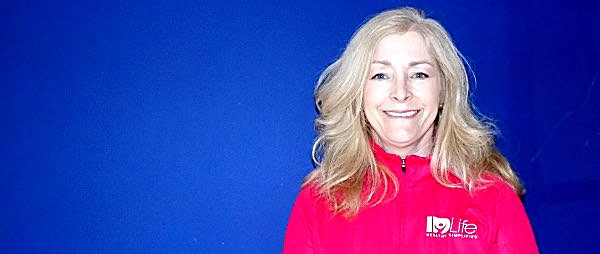- By Dan Veaner
- Business & Technology
 Print
Print 
Tracey Austin suffered from severe and frequent migraine headaches since she was seven years old. She consulted doctors, and tried just about everything, but nothing worked. A conversation with a friend led to talk about IDLife, a company that personalizes dietary supplements based on an extensive questionnaire. The friend was selling the supplements and told Austin she should see if they could help.
"We were talking about some issues that we were both having," Austin says. "Mine was severe migraines that I was having since I was about seven years old. I had tried different medications. I tried acupuncture, chiropractic, massage... you name it. It had come to a point where I didn't know what else to do. I believe in vitamins and I think that everybody needs certain nutrition, so I decided to give it a try. It has a 30 day money back guarantee, so I figured, why not?"
After two weeks she was down from a couple of migraines a week to one, and by the second month she was down to zero. Not long after that she decided to sell the supplements herself. Her daughter also benefited from the supplements. Austin says after only a month she her daughter's headaches were gone, and her acne cleared up within two months.
"At that point I was hooked, and decided to continue," she says. "As I looked at it I decided to look at the business opportunity behind it. I saw it as a very good business opportunity because I think that's where health care is going. The future of health care is very customized. I think more is going to be online, with interactions with your physicians, but more customized for the individual."
That is a key feature of the program. You fill out a HIPPA-compliant comprehensive health care assessment form, and supplements are recommended based on your input. The result is packages of supplements, arranged in day and night packs for each day of the month.
"It's different than when you go to the drug store," Austin says. "You go to the counter and you're looking at these hundreds of different bottles. you don't know how long they've been sitting there. You don't really know what's in them. They're not necessarily pharmaceutical grade. You don't know where they're made. There is a lot of 'ifs' about them."
Austin says the multi-level piece is a lot like a conventional business with a CEO who has a sales manager under him or her, then salespeople who have salespeople beneath them in the structure. She likens recruitment of salespeople to a promotion in a conventional company. Austin has recruited about 15 or 20 people so far, who sell on her team. She doesn't pressure them to make sales targets, but she says that you can get out of it what you put into it, up to making it a full time job.
"I would like for it to keep growing," she says. "When you work another job as I do it's harder to put all of your energy into it. I did it for vacation money. But the more time and energy I put into it, the more it's growing. That's the key to it. if, at some point, it becomes a full time business, which it has for many people, great. That's a great opportunity."
Many of Austin's sales result from casual conversations like the one that got Austin interested in IDLife in the first place. Others come from her Web site, where you can also fill out the health care assessment. Sometimes her group hosts events, or attends health and wellness fairs. She says that a lot of people have good results from the products and have become repeat customers.
"I have a customer who loves our energy product, a slow-release caffeine product," she says. "She says it's the only thing she's ever had that gives her energy, keeps her focused but doesn't give her the jitters. Some people may like it and some people may not, but the majority of the people that I have as customers are continual customers. One of my friends was really struggling. He was a tennis player and he was struggling because he had thyroid and knee surgery. He gained a lot of weight because he couldn't work out. There were a lot of issues. I talked to him about the supplements, and he is now down about 65 pounds. He has come off four different medications -- he was on six or seven. His blood sugars had gone way down."
Austin says that the products are easy to sell because she believes in them and uses them herself. She seems to have a natural affinity for the business, with a low-key sales approach that more or less boils down to 'try it - you'll like it' -- and no pressure if you don't. But she says most people do, and she loves hearing back from folks whose health has improved.
"I do love this business," she says. "I like that it allows people to customize what they're getting so they need what's needed for them. When somebody calls me and says 'I'm down 25 pounds. I'm off my medication' or 'I'm sleeping better at night' that's when I know I'm doing something good for people. I'm sharing the information that helped me, because I've seen what it does for people. That, for me, is the most important thing. I love people. I love to have conversations and see what makes people tick. I feel like when people realize what it can do for them it builds that business, but it also builds healthier people."
v15i12




